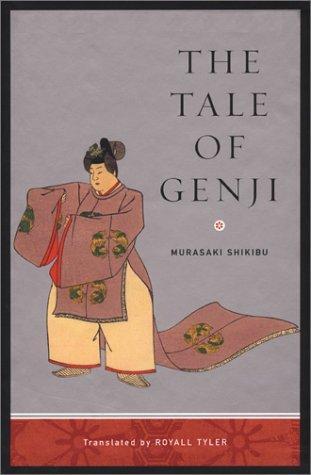English language
The tale of Genji
The Tale of Genji (源氏物語, Genji monogatari, pronounced [ɡeɲdʑi monoɡaꜜtaɾi]) is a classic work of Japanese literature written in the early 11th century by the noblewoman and lady-in-waiting Murasaki Shikibu. The original manuscript, created around the peak of the Heian period, no longer exists. It was made in "concertina" or orihon style: several sheets of paper pasted together and folded alternately in one direction then the other. The work is a unique depiction of the lifestyles of high courtiers during the Heian period. It is written in archaic language and a poetic and complex style that make it unreadable without specialized study. It was not until the early 20th century that Genji was translated into modern Japanese by the poet Akiko Yosano. The first English translation was attempted in 1882 by Suematsu Kencho, but was of poor quality and incomplete. The work recounts the life of Hikaru Genji, or "Shining …
The Tale of Genji (源氏物語, Genji monogatari, pronounced [ɡeɲdʑi monoɡaꜜtaɾi]) is a classic work of Japanese literature written in the early 11th century by the noblewoman and lady-in-waiting Murasaki Shikibu. The original manuscript, created around the peak of the Heian period, no longer exists. It was made in "concertina" or orihon style: several sheets of paper pasted together and folded alternately in one direction then the other. The work is a unique depiction of the lifestyles of high courtiers during the Heian period. It is written in archaic language and a poetic and complex style that make it unreadable without specialized study. It was not until the early 20th century that Genji was translated into modern Japanese by the poet Akiko Yosano. The first English translation was attempted in 1882 by Suematsu Kencho, but was of poor quality and incomplete. The work recounts the life of Hikaru Genji, or "Shining Genji", who is the son of an ancient Japanese emperor (known to readers as Emperor Kiritsubo) and a low-ranking concubine called Kiritsubo Consort. For political reasons, the emperor removes Genji from the line of succession, demoting him to a commoner by giving him the surname Minamoto, and he pursues a career as an imperial officer. The tale concentrates on Genji's romantic life and describes the customs of the aristocratic society of the time. It may be the world's first novel, the first psychological novel, and the first novel still to be considered a classic particularly in the context of Japanese literature.
